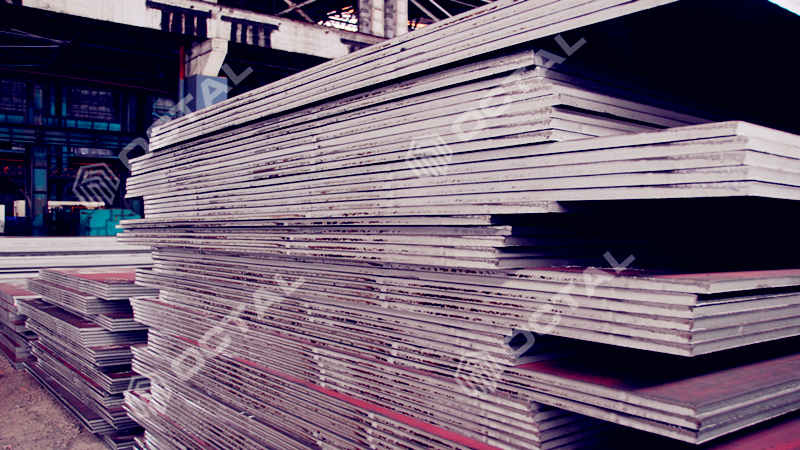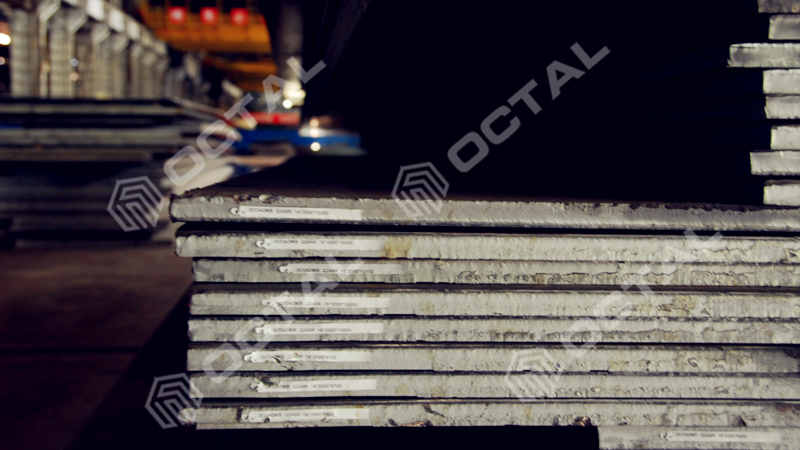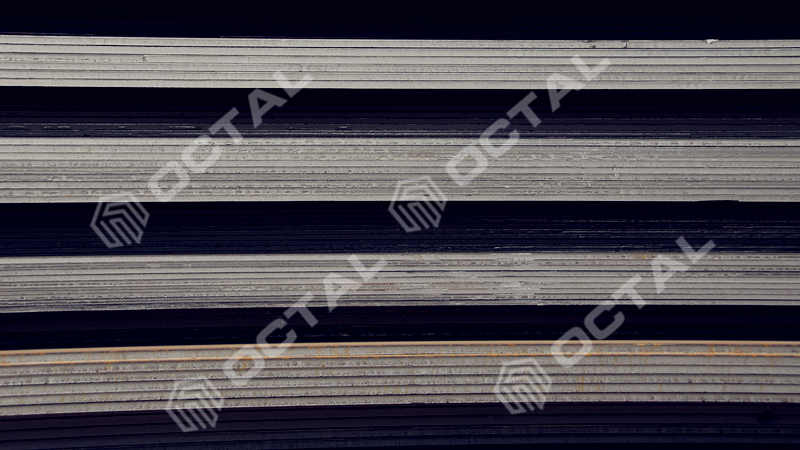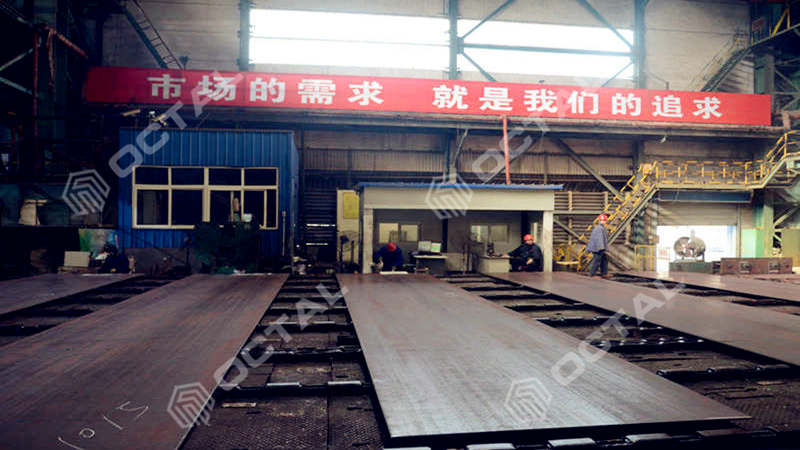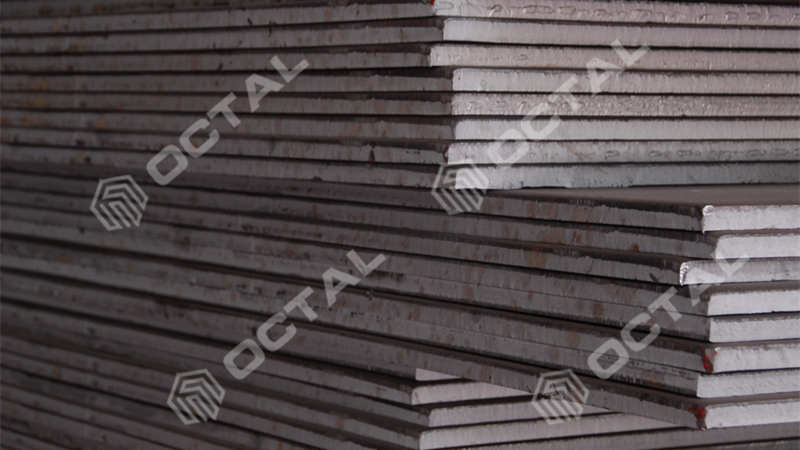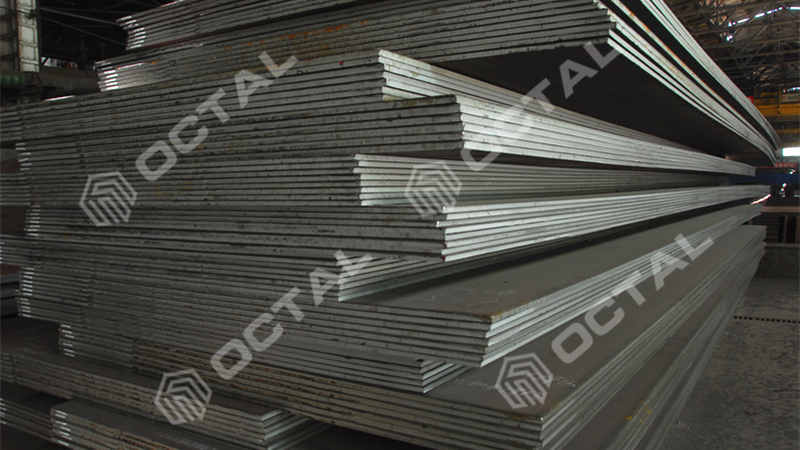Pressure vessel steel plate covers carbon steel and alloy steel grades, which are designed for use in making pressure vessels, boilers, heat exchangers and any other vessels and tanks that to store liquid or gas at high pressures. It includes applications like below or similar:
- Crude Oil Storage Tanks
- Natural Gas Storage Tanks
- Chemicals and Liquid Storage Tanks
- Firewater Tanks
- Diesel Storage Tanks
- Gas Cylinders for Welding
- Gas Cylinders for Cooking in peoples daily life
- Oxygen Cylinders for Diving
There are a wide range of different liquid and chemicals that need to be stored under pressure. Such us food, milk, plam oil, crude oil, natural gas includes their distillates to highly lethal acides which is bad to environments, so these liquid or gas shall be kept in high or low temperatures. Therefore, pressure vessel plates covers a wide range of steel grades which to use in different cases.
Pressure Vessel Plate Commonly Ranged in There groups of Steel Material
Steel plates material used for pressure vessels commonly could be divided into three groups.
Carbon Steel Pressure Vessel Grades
Carbon steel pressure vessel steel plates are general use vessel plates that includes several standards and grades.
ASTM A537 CL1, CL2 Steel Plate
Heat-treated With Higher Strength than A516
ASTM A515 Gr 65, 70
For Intermediate & Higher Temperature
ASTM A283 Grade C
Low & Intermediate Strength Steel Plate
ASTM A285 Grade C
For Fusion Welded Pressure Vessels in as rolled Condition
Pressure Vessel Steel provides premium quality carbon steel plate for boiler and pressure vessel fabrication which is perfectly suited to the high standards set by the oil, gas, and petrochemical equipment, Octal stocks a wide range of dimensions of ASTM A516 GR70, A283 Grade C, ASTM A537 CL1/CL2.
Low Alloy Pressure Vessel Grades
With adding alloy elements like chromium, molybdenum, or nickel will increase steel heat and corrosion resistances. These plates also known as Chrome Moly Steel Plates.
ASTM A387 Crade11, 22 Steel Plate
Chromium-Molybedenum Alloy Steel Plate
The material grades that between pure carbon steel pressure vessel grades and stainless steel plates. Typically standards is ASTM A387, 16Mo3 these steels have improved corrosion and temperature resistance over the standard carbon steels but without the cost of stainless steels (due to their lower nickel and chromium content).
Stainless Steel Vessel Grades
By adding the certain percent of chromium, nickel and molybdenum, will increase highly resistant of stainless steel plates, for to use in critical applications that require highly resistant to the environment. Such as used in food or chemical industries.
The manufacture of pressure vessels is tightly regulated as a result of the risks involved and as a consequence the materials that can be used in vessels is also tightly specified. The most common specifications for pressure vessel steels are the EN10028 standards – which are European in origin – and the the ASME/ASTM standards which are from the US.
We can also supply high specification pressure vessel steel plate used in the oil and gas industry and specifically in steel plate resistant to Hydrogen Induced Cracking (HIC).
HIC Resistant Pressure Vessel Steel Plate (NACE)
These plates served in equipment used in H2S-containing environments (for sour services), H2S is a harmful chemicals that mostly easy to generate the corrosion especially in oil and gas production. Refered standard is NACE MR0175.

